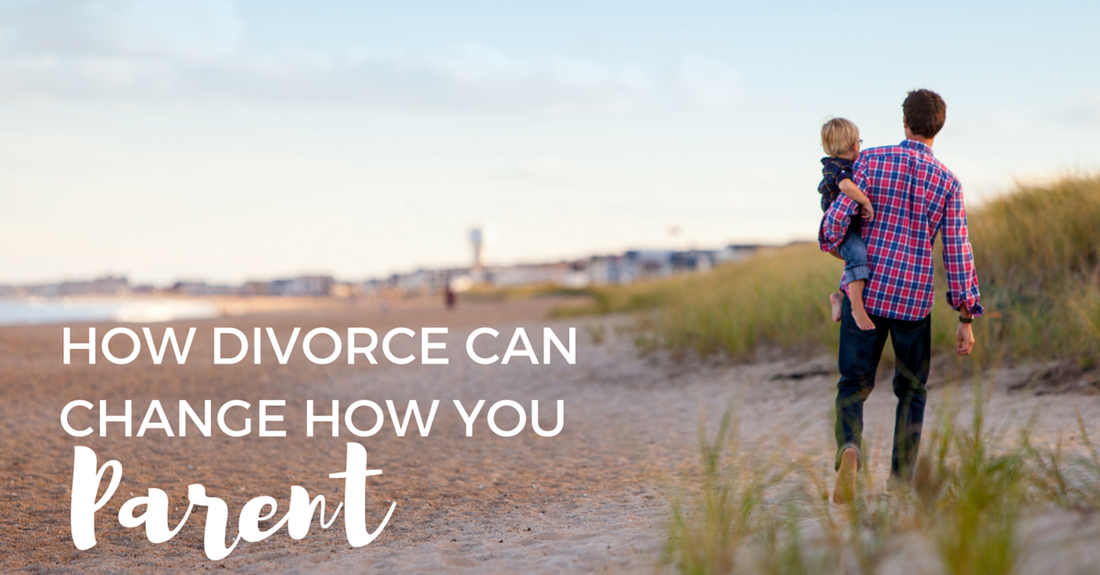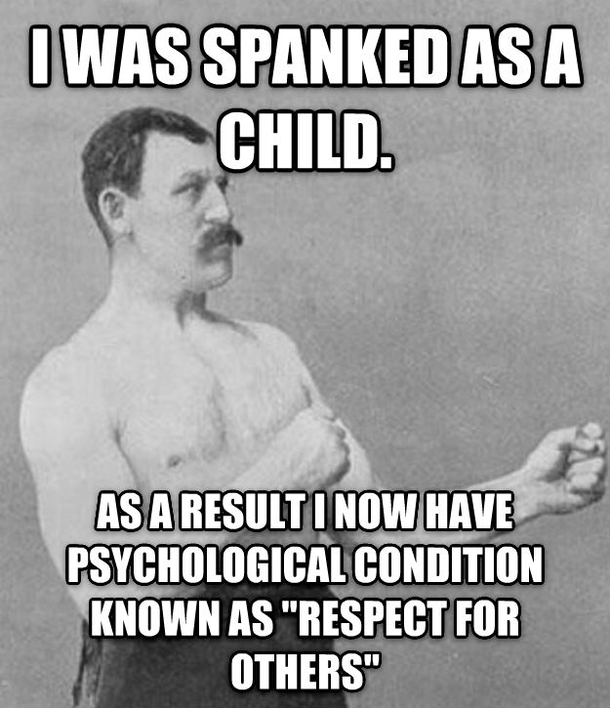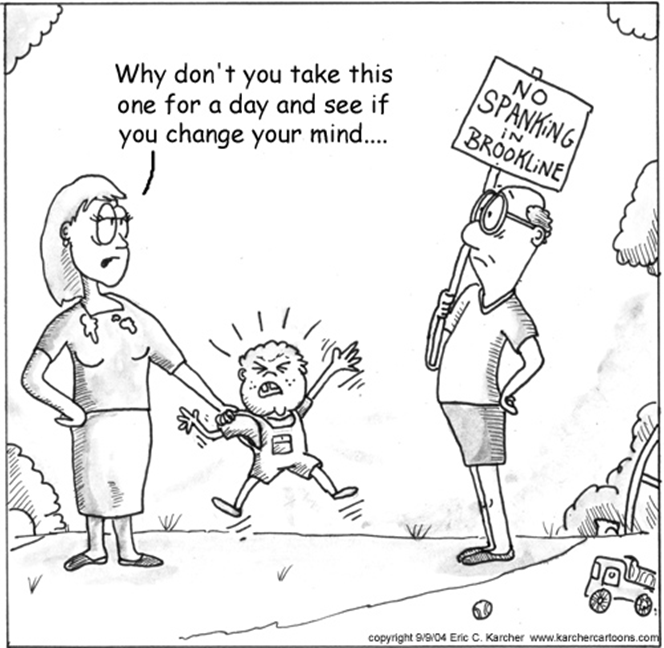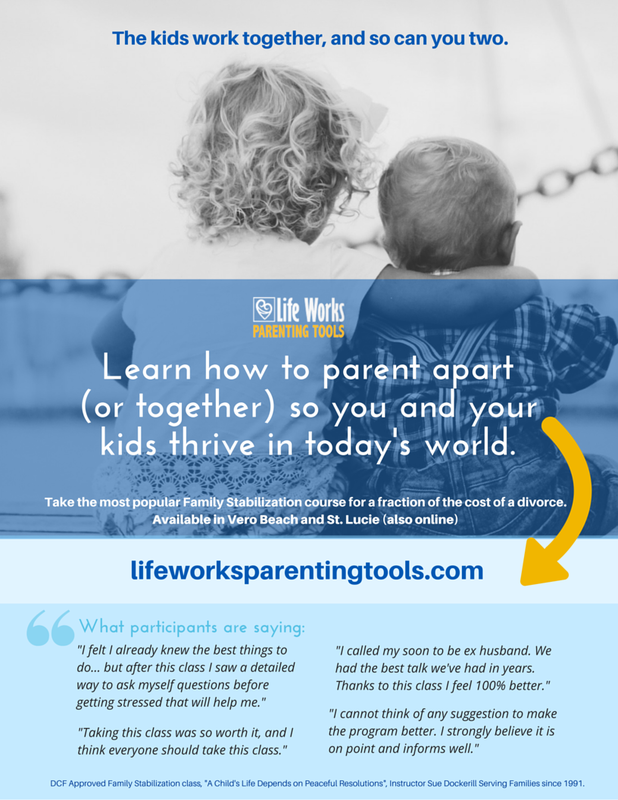 One way to help your child thrive through divorce is to keep your conversations about the other parent positive What if the other parent has problems and safety is an issue? Talk about the actions of the other parent. Anger management, addiction, and mental health issues. The other parent can love their children and need help. It is never the child’s fault and they need to have a plan. Your child’s job is to keep them safe and your job is to help keep them stay that way. If your child’s safety is an issue due to Excessive drinking, violence, mental health issues, seek help. Tell your child these behaviors are not ok. There is no excuse for abuse. During these trying times sometimes things get out of hand and your children needs to discuss ways they can handle the situation. What is the plan if they ever feel afraid? Have a list of neighbors to call. Have an emergency plan; create a bag with hidden money and numbers of people to call. Teach them how to call the police. Let them know it is ok to get help. Only have talks with your children about things they can control like; school, friends, hobbies, feelings. If they are angry it is ok it is just as normal for kids to be angry as it is for parents to feel angry. Kids who are not showing emotions are often trying to help the parents by hiding them. Let them know it is ok and that anger is a stage of loss. It is what happens when basic human needs to feel loved, valued and powerful are not being met. Let them know that anger is just part of the reaction. Teach them how to take care of themselves by making a list of things to do that make them feel better so they do better. They need to know that the anger will pass and things will get better. It helps if they can see this change happening with their parents. It gives them hope and models how to recover from loss. Ask yourself is the way I am talking with the other parent helpful or hurtful? If hurtful say, “The way you are talking to me is hurtful I don't want to fight I want to work on solutions. Repeat until it sinks in or say I have to go now and I will call you later when we are both calm. If you are not able to speak to one another respectfully, use Our Family Wizard. It is an email program where you can communicate about schedules, changes and manage child support. The program is a way for the courts to monitor effective communication. Knowing this is a court record sometimes helps parents be civil. Instead of pumping the child for information about the other parent commit to speaking directly or let it go. Sending messages through your children puts the burden on how they land on your child. Agree to talk directly and equip your child with a friendly signal to remind you in case you forget. “This sounds like A.P. Adult Problem” Solving problems like custody issues, money issues, visitation need to be done as a business not to hurt the other parent or harm the child’s relationship with the other parent Remember to always ask, “Is what I am thinking or doing helpful or hurtful? Take A Child’s Life Depends on Peaceful Resolutions To get the support you need for making these changes so your family thrives through divorce. $39.95 Small investment with great returns!! Your children will thank you someday! Visit Life Works Parenting Tools Happy New Year
Resolution number replace over parenting with living a life you love to live. 1. By bringing out the best in yourself you will bring out best in others. Love is an inside job. Take responsibility for putting self care at the top of your list.
Instead make a "happy" list and do four things each week that makes you feel loved, valued, powerful and connected. When you feel better you do better. 2. Be the change you want to see in others. Teach powerful listening skills. How many of you want kids who listen better? Commit to one "check and connect" moment per day/per child and listen without judging, fixing or controlling. Be present, make eye contact, sit down and unhook from phones and computers. Conversation starter. Play the "High Low" game by sharing the high of the day and the low point. This is a game you can add to your bedtime routine. It’s a time to connect. Nothing to do or fix. If everyone in the family is responsible for taking care of themselves, first have a weekly family meeting and share what four things you will do and watch what happens when you focus on the positive. Where focus goes it grows. <>······ Nationally recognized parenting expert Sue Dockerill is the Founder of Life Works Parenting Tools and the author A Child’s Life Depends of Peaceful Resolutions. Looking for a better way” and a Certified Redirecting Children’s Behavior Instructor, Sue is a leader in positive parenting techniques for healthy, happy families. Sue is inspiring others to think outside the box. In her most important role, she is the wife, and co-creator of an amazing blended family with their stepson and two children. By Rosalind Sedacca, CCT Michael Mastracci is an attorney on a mission -- one he shares with the entire child-centered divorce community. He talks about - and is soon to be the author of a new book about - "Divorce Without Dishonor", a difficult and acrimonious divorce and child custody battle led to my interest in collaborative family law, notes Mastracci. His soon to be released book focuses on child custody issues and divorce using collaborative law.
Mike is quite personable and a good listener. Along with those traits he has a sincere interest in helping parents to resolve their divorce and child custody issues "in a fair and even-handed manner that will cause the least amount of damage" to their children. "I have personally seen the strife that divorce causes in families," says Mike, "and want to express my concern and compassion for your personal situation." "Collaborative law does not mean giving away rights or just rolling over to a stronger willed soon-to-be ex-spouse," he adds. "It means working through the issues as adults with one focus -- helping the kids get through the mess caused by divorce." Fortunately, there are collaborative divorce attorneys like Mike located all over the United States and in many other countries around the world. Seek them out. Read their websites and blogs. (Mike's is www.divorcewithoutdishonor.com) Get to know their philosophy about supporting families and putting children's needs first when making custody and other related divorce decisions. Your children will thank you years from now when they have the awareness to understand how you bent over backwards to diffuse negative energy and create collaborative harmony in your post-divorce family relationships. One of the most rewarding experiences in my life came when my son, as a young adult in his late teens or early twenties, mentioned the separation that took place when he was eleven (followed later by divorce). He said although he was very upset at the time, looking back he can now see that Dad and I were not very compatible and didn't really belong together. He mentioned that he was happy that both of us have since remarried much more happily. And he thanked me for working hard to maintain a positive relationship with his father over the years so that we were both there for special celebrations, important events and other significant times in his life. In fact, he wrote the Introduction to my new book, How Do I Tell the Kids about the Divorce? A Create-a-Storybook Guide to Preparing Your Children - with Love! The book is based on my own personal experience more than a decade ago when I came up with the concept of creating a personal family storybook, in advance of the dreaded divorce talk. Through this approach the children have something to read over again and again reminding them of the crucial messages they need to repeatedly hear and accept. I am so grateful that divorce attorneys like Mike Mastracci are available to share their legal expertise, along with their compassion, about child-centered issues to assist parents facing divorce or separation in creating the most positive outcome for everyone in the family. 1. Write a list of all the things that you know your partner loves about you and
wants from you. Write everything down that pops into your mind. 2. Go over each item on your list and ask yourself, “ Do I do that for my partner?” Why or why not? 3. Interview your partner and ask them to be straight with you about what would make you the best partner ever. Make a list without judging, correcting, defending, or taking it personal. Interview them as if you were a reporter writing an article on the ideal partner. Get every detail continue to say what else and be curious, "Tell me more about that, what else do you need, desire, and crave?." Just keep writing don’t repeat anything just get it all down on paper. Pretend they are someone you don’t know so you don’t react. You want to create a safe place. 4. Next to each item be truthful whether you provide this for your partner or not. Then next to your answer write down in a few words why you either do or do not. 5. Now make a list of everything you adore about your partner. Their smile, if they like nature, animals, humor. One way to add intimacy to your relationship is to be really interested in what your partner is interested in. Shift from loving your partner the way you think they should be loved to how they desire love. This is key to being the best partner ever! 6. Notice if there is any difference in what you thought your partners wanted to what your partner needed. In order to feel loved, valued powerful and connected. 7. Make a lifetime commitment to making your partner extraordinary no matter what! Be the gift of being the best partner EVER!! Love is a verb. When your children move from house to house whether every other weekend or every week, there is always a “settling-in time” at each home that is challenging for kids and parents. When my stepson Drew, would come home In spite of the excitement, I noticed a change in his behavior. It took about three days to settle in to our routine. Fortunately, I knew this was normal. I also take about three days to settle in when I stay somewhere different. It makes sense that going from one parent to the other would be an adjustment. Not to mention a step mom and a step dad in the mix. The switch is a reminder of the split and a heightened mix of feelings involving basic human needs. Remember how your child gets their needs met with mom is going to be different with dad. When these needs: loved, value, and belonging and power are not met kids act out. Kids often misbehave during this time and parents worry it is a sign of a difficult visit with the other parent, or take it personally believing their child isn’t glad to see them. While these are possibilities, the most common cause of acting out in the transition time is because the switch is hard, plain and simple. I also notice a change in Drew’s behavior right before he left. It was his way of detaching. Saying goodbye is a little easier if there is a little tension in the air. Here are a few tips that have helped kids and parents alike:
Talk to your child about how hard it is to go back and forth and that you realize they might be “grumpy” or not want to talk when they first get home. Your understanding of how things look from their eyes will help them feel loved, and connected.
Change your life in 90 days!by Guest Author Elizabeth Powell Have you ever come to a place where there is nowhere else to go but up, down, or sideways? You know that place, I’m sure we’ve all been there, right? You just get to this point where the choices aren’t easy and you know, you just know, that you can’t go back… back is not an option. Seven years ago I was at that point. I had a great job that I loved, two beautiful children, but my home and my marriage was falling apart, like ground crumbling in one of those action adventure movies where the earth is caving in behind the characters’ feet and they have no choice but to jump or climb or die. Actually, my marriage was crumbling before it started. We had built a relationship on a poor foundation to begin with. Everything that was contributing to the inevitable collapse of my family as I knew it were the very things that I saw as “red flags” when I met my husband. Now, don’t get me wrong, my ex-husband is an amazing person. He is a remarkable human being. He is a good father and a kind person. And those were the reasons I stayed and created a relationship with him. You know, no one teaches us how to have relationships. There are no classes when we are growing up in school about how to have relationships, so we learn by default. And our default can be good, our default can be disastrous – or somewhere in between. The fact of the matter is that we learn by our role models and by our societal norms. Very rarely do we “learn” how to have healthy relationships. Many times we don’t even know what a “healthy relationship” looks like. So here I was, sitting at the edge of the cliff… scared to death to take that jump, that leap of faith, but I had no other option… the ground behind me was crumbling and crumbling fast. If you have been through a divorce, then you probably have a pretty good idea of that place I’m talking about. You know people don’t just wake up one day an say “oh, honey, gee, this isn’t really working out, let’s get a divorce” – statistics show that one of you figure it out first… and the other one, even if all the signs are present that your marriage is falling apart, don’t even see it coming. So regardless of which side you were on (or are on) with your divorce, don’t feel bad. There’s a lot of guilt and frustration on both sides of that coin. So there I was… ready to jump knowing that there was no other option… but it isn’t just me, you see, I have these two precious children to think about… ages 6 and 3… pretty critical ages for making a drastic life change, but again, there was no other option. The marriage was so bad that staying I could see was more detrimental than leaving. So, carefully planned out, I did it. And let me tell you… it was NOT pretty! There was fighting and a lot hurt feelings, but after about 2 months things had finally settled down and we were, well… not amicable, but we could at least talk without trying to verbally assault each other! Fast forward one year and the fire was at least settled down to coals. We had been living separately and the children were on a good schedule. I had somehow done it. Somehow my husband had done it. We had managed to separate our family and peace, to some degree, was the result. After a year I had decided to file for divorce and that’s when we found out about the Parenting Class that was required before our divorce could be finalized. At that point we didn’t have to take the class until right before the divorce proceedings. A few weeks before our court date I took Sue Dockerill’s parenting class and it completely changed my life and the way I parent my children and co-parent with their dad. Shortly after I took the class, my soon to be ex-husband took the same class and it revolutionized our relationship as newly divorcing parents. You know, I see so many couples who have divorced or are divorcing with children, and instead of it being a solution to the problems they were having, it becomes an extension of the problems. It’s just a continuance of the fighting, bickering, blaming, guilting, and shaming…. And the worst thing about this is that there are children involved… no children - fight, bicker, shame, blame all you want. It’s like driving a car without wearing your seat belt… only you will suffer the consequences of your actions… but put a child in the car without a car seat or seat belt and you can have a disastrous effect on that child and his or her life forever. And this is exactly what happens when you continue to fight and blame and shame as co-parents. Ultimately, you are teaching your child how to relate to another human being, and more importantly you are teaching the child how to have unhealthy relationships. Did you know that a child’s brain is 90% developed by the age of 5? Critical life skills are being imprinted early on like communicating needs, showing affection and love, how to handle stress, and how to self calm. When our children are born they don’t come with an owner’s manual. When did you take a class that taught you the most effective ways to parent? When did you take a class on how to rewire yourself so that you are modeling the most effective methods for relating to yourself and others? Anybody? Ever? You upgrade your computer, you learn the most effective methods for managing your company, your employees, you keep up to date with the newest techniques in your professional field, you take continuing education credits… but when do you update, upgrade, and, when necessary, rework your method of parenting? If I give you a block of wood and a screw and ask you to put the screw in the block of wood, there’s no doubt in my mind that any of you could do this task with ease, correct? So here’s your screw and wood – an easy task…. But here’s your choice of tools - a wrench, a hammer, needle nose pliers, a mallet and a ratchet – now how successful are you going to be with this “easy” task? What’s this screw going to look like after your attempt to put it in with these tools? Probably not very good, huh? Our tools are handed down from generation to generation within a model given to us by our society, our culture and our religions. We can’t help that we only have a wrench, let’s say in our toolbox. Let’s take spanking as a perfect example – “spare the rod, spoil the child” – we love using that as our justification for spanking our children, especially if we were raised in the religious tradition that gave it to us, but let me explain – does anyone truly understand the context from which that proverb was given? Proverbs 13:24 actually says “Whoever spares the rod hates their children, but the one who loves their children is careful to discipline them.” This is the new International Version and regardless of whether you are a “religious person” or a Christian, wouldn’t you say that this saying is deeply embedded in our culture? The thing that most of us don’t realize, however, is the context which the proverb was given. The rod was used by sheep herders to direct their flock and keep them safe, however, a rod would never have been used to strike or hit a sheep because it would bruise the meat. So how, when and where did the translation and use of this saying come to condone and even encourage spanking, whipping or hitting our children? Not only is it encouraged in some groups, but we, culturally, have strong disdain for those who do not spank their children. We continue to shame those who do not “discipline” (i.e. spank) their children and encourage each other that it is the right and only way to raise up strong, healthy, happy kids and furthermore, that if you withhold this type of discipline that you don’t love your children and that they will be doomed to fail in life. That’s like me telling you that the only and right way to put this screw in the wood is to use this wrench. So we have pressures, parental peer pressures, if you will, for how to raise our kids, we have our families telling us what to do, we have our experience (good, bad or indifferent) from how we were raised… all of these are our tools, sitting in our toolbox waiting to be used. Some of these tools might be very effective and some of them can be disastrous, but we continue using them many times and even if they aren’t working and we can see they aren’t working, we are at a loss as to a better way. Even when presented with a better way to parent our children, the concepts might be so foreign to us and so counter-intuitive based on our past and our culture that we have a hard time adopting them. Tell a spanking parent to stop spanking and they will give you a very unusual look – I was one of those parents, trust me I know firsthand how hard it was to embrace the “non-spanking” philosophy – but I’m a highly logical person… I kept looking at this situation after Sue’s class and asking myself “why do I continue to do something that does not work?”
“Why do I spank my child for hitting?” When I really deconstructed it I realized how absurd it was. But I also had to have another tool in hand… I needed something that worked! Without the replacement of one tool for another and the reality of having to “get the job done” we have to empower our parents with tools that work! Unfortunately, most of the time we don’t raise our children based on the latest and greatest research or knowledge – if we ran our businesses the way we raise our children, we would likely go out of business… we have to modify, learn, research and try out new methods when the old methods aren’t working. Add divorce to the scene of raising children and you have the potential for disaster – Stress, less money, major life transition, etc. These are major changes that are coming out of an already unstable situation and even as adults we have a lot of trouble navigating our way through “troubled waters” – so, imagine how difficult it is for our children. If you’ve already been through something like this then you already know what I’m talking about and how hard it can be. It would behoove all of us to have parenting and relationship classes and instruction way before now – we should be teaching life skills like this with really sound curriculum in our schools beginning in pre-k! We usually introduce “Life Skills” to middle schoolers, but the fact of the matter is that this is too late. Children’s brains reach 82% of their adult size by age 3 and 90% by age 5 – they are learning critical life skills early on even if we don’t recognize it – they are like sponges. They are
Life Works Parenting Tools is dedicated to giving parents, teachers and even corporate America new tools for dealing with children and behaviors that we want to change. You can take any of the tools that we teach in either the divorce class or Redirecting Children’s Behavior class and apply them to anyone, anywhere at any time…. Through parent education, we are able to give parents new tools. And fortunately enough the courts require parents who are divorcing or even non-married parents to attend the 4 hour parenting class during divorce. I’m not saying this is enough by any stretch of the means, but it’s a step in the right direction. Sue’s class changed the relationship I had with my children’s dad. We had real tools that worked for communicating with each other and with our children. The information she presented and her “real talk” touched, moved and inspired me so much that I knew one day I would want to share what I had learned with other parents. Routinely, I have other parents completely amazed at how my ex-husband and I co-parent our children. People often say “you guys are an exception to the rule.” But my answer is that with all the right tools, everyone can be successful co-parents! We can change our co-parenting relationships with the right tools to be the norm, not the exception! We can successfully put that screw in the block of wood with ease and have it hold strong! Today, six years after taking Sue’s class, I’m not only bringing the coursework to parents who attend my class, I’m bringing 6 years of experience, time tested results to demonstrate the effectiveness and success of Sue’s class. I understand intimately the ups and downs, the struggles and the successes of co-parenting and more importantly I know that it IS possible to co-parent with success! What do you do when someone you love hurts you? (Now I am not talking about abuse... if you feel unsafe call 911 and seek help.)
I'm talking about the child who makes you feel like you are the worse parent on the earth... or maybe a lover who hasn't been too nice lately, or a friend who doesn't return your call because they are too busy, or a teenager experiencing unruly hormone changes (you know what I'm talking about!). When someone damages you emotionally, you have an opportunity to be powerful. Do the unexpected. Be an observer. It’s like an out of body experience. Suddenly you have a shield that everything bounces off. Nothing sticks because you are not taking anything personally. Remember, feelings are neither right nor wrong, they are just feelings. Here are 3 rules when someone you love hurts you: Rule 1. Don’t hurt them back... Instead recognize that they are upset and calling out for love. A way to do this is to change your thinking... Let go of "good" and "bad" and see all behavior as a person is either "thriving" or "struggling". What do I mean? Instead of saying "you're a good kid" or "you're a bad kid", acknowledge that children (and adults) are either struggling or thriving. If someone is hurting you, they are most likely struggling, so don’t take it personally. When you know someone is struggling, it's easier to come from a place of empathy and help that person. When we let other people’s hurtful words stick to us, we become the victim. What if I told you that the hurtful words are not really about you? Which leads me to the second rule... Rule 2. Don’t make assumptions... Instead be curious. Say to them, "Tell me some more about how you are feeling. I can see how upset you are, and I feel terrible.” Our gut is to get defensive and hurt back. If you don’t want this to be a reoccurring argument, complete it by making the person feel understood. Once you make someone feel understood the problem can be resolved. Imagine the person saying, “It would mean a lot to me if you could just repeat back to me what I am trying to get across." Then tell them what you are hearing to confirm it is correct and help them feel understood. Rule 3. Remember the kids are watching you. This is the most important rule. If we want your children to grow up feeling loved and powerful, we have to model it. Try these rules out in your life and tell me in the comments below what you experienced. Did it help you resolve an issue? |
Susan Dockerill has 10 years of teaching children in public, private, and military schools at home and abroad, plus over 30 years teaching and mediating with parents and teachers. Susan has the expertise to speak frankly about marriage, divorce, children, and being responsible for living the life of your dreams.
Florida Parenting Topics
All Apalachicola Boca Raton Child Development Children's Adjustment To Divorce Child Well Being Post Divorce Child Well-being Post-Divorce Choices Coparenting Co Parenting Strategies Co-parenting Strategies Coping With Parental Separation Davie Discipline After Divorce Divorce Divorce And Parenting Effective Parenting Techniques Emotional Health Of Children Family Dynamics Family Stabilization Class Florida Florida Divorce Class Florida Parenting Class Fort Pierce Islamorada Jacksonville Live Oak Miami Ocala Orlando Palm Beach Gardens Palm City Parental Guidance Parenting Pompano Beach Redirecting Behavior Relationships Resources Sanford Santa Rosa Sarasota Self Care St Petersburg Tampa Technology Toddlers Tyndall Winter Haven |
DCF Approved Family Stabilization class Co-Parenting 101
Instructor Sue Dockerill Serving Families since 1991.
Instructor Sue Dockerill Serving Families since 1991.
|
This course has been approved by the Florida Department of Children and Families.
Life Works Parenting Tools is dedicated to bridging the gap between home and school by working collaboratively with families, schools, and other local programs and agencies to provide parenting classes, teacher-in-service training, mediation and stay in school programs for at-risk children. Parenting Plan Divorce Resource Resource Guide Florida Divorce Parenting Class |
Privacy Policy
|
Our Commitment to you
This material may not be published, broadcast, rewritten, or redistributed. ©2015-2017 Life Works Parenting Tools. All rights reserved. Waking Girl Web Design.






